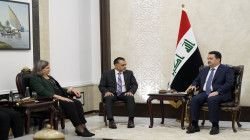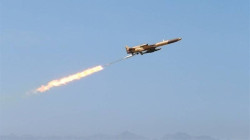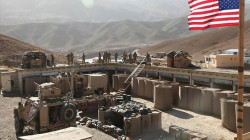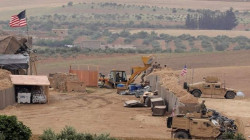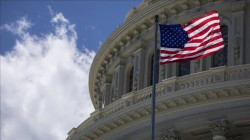Iraqi PM Advisor: Al-Sudani's visit to US will establish new era of relations between the two countries
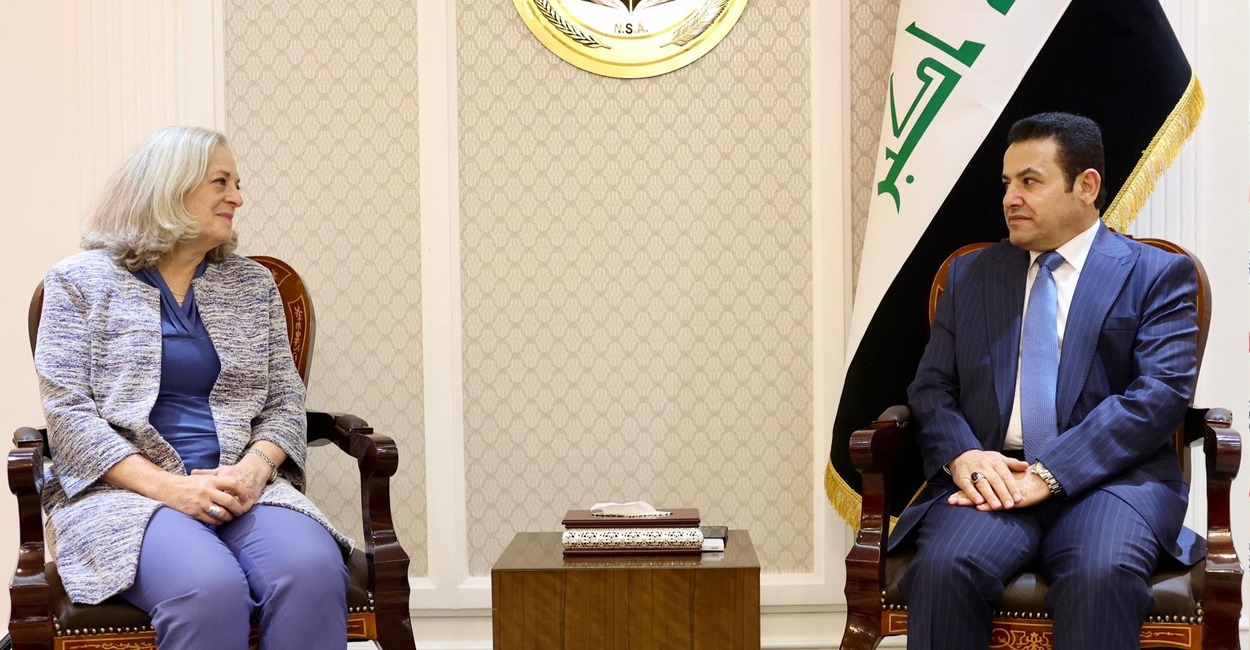
Shafaq News / Iraqi National Security Advisor Qasim al-Araji stated, on Tuesday, that Prime Minister Mohammed Shia Al-Sudani's visit to the United States "will establish a new era" in relations between Baghdad and Washington, while US Ambassador to Baghdad, Alina Romanowski, described the visit as "very important".
Al-Araji discussed in his meeting with the US Ambassador the latest developments in the political and security situations regionally and internationally, as well as the prospects of cooperation and partnership between Iraq and the US.
The meeting also addressed issues of common interest, including Al-Hol camp file and the continued cooperation in the fight against terrorism.
Al-Araji emphasized that "the Strategic Framework Agreement between Iraq and the United States is important and comprehensive, covering all areas beyond just security, stressing the importance of repatriating nationals from Al-Hol camp and drying up the sources of human, financial, and media terrorism."
On her part, the US Ambassador affirmed that "the Prime Minister's visit to Washington is very crucial, and both countries are moving towards bilateral security agreements, with committees from both sides continuing meetings regarding the mission of the international alliance."
The White House announced on March 22nd that "the Iraqi Prime Minister will visit Washington to meet with President Joe Biden," stating that "the visit will take place in mid-April, and will discuss a range of issues, including the development of the US military mission in Iraq."
The White House stated that "On April 15th, President Joe Biden will welcome Prime Minister Al-Sudani to the White House to coordinate on shared priorities and strengthen the strong bilateral partnership between the United States and Iraq."
It further emphasized that "the leaders will reaffirm their commitment to the Strategic Framework Agreement and work to deepen their shared vision for a safe, sovereign, prosperous, and fully integrated Iraq in the broader region."
"President Biden and Prime Minister Al-Sudani will consult on a range of issues during the visit, including our shared commitment to the enduring defeat of ISIS and the evolution of the military mission after nearly a decade since the formation of the successful Global Coalition to defeat ISIS."
The White House concluded, "They will also discuss the ongoing Iraqi financial reforms to enhance economic development and progress towards Iraq's energy independence and modernization."
The impending visit of the Iraqi PM signifies a significant diplomatic endeavor. This high-level engagement marks a critical juncture in the bilateral relations between Iraq and the US, highlighting the importance of fostering a new era of cooperation and partnership.
The multifaceted relationship between Iraq and the United States reflects a complex history marked by significant shifts and evolving dynamics since the 2003 US-led invasion that toppled Saddam Hussein's regime.
Despite occasional tensions, recent years have seen increased cooperation, especially in security, counterterrorism, and economic development.
While the US remains a vital economic partner for Iraq, challenges persist regarding sovereignty, military presence, and foreign policy alignment.
Nevertheless, both countries continue to engage in diplomatic dialogue, aiming to address shared challenges while managing differences effectively.
Given the strategic importance of the US as Iraq's primary ally, there is a national interest in consolidating ties. However, clear and defined terms are essential to prevent ambiguity and ensure alignment with stated positions.
